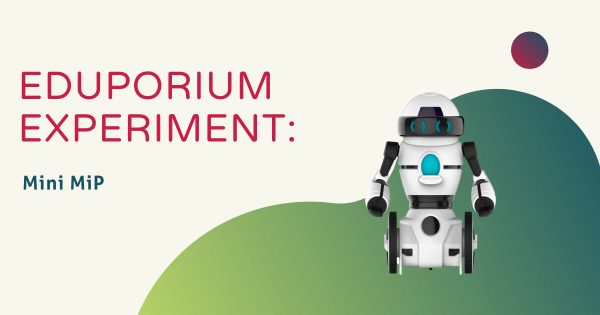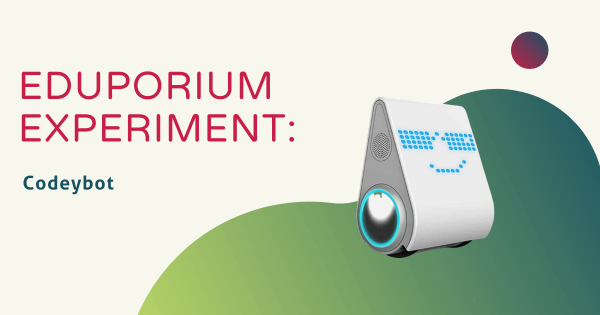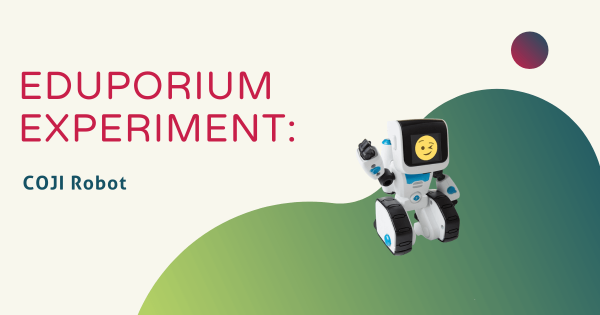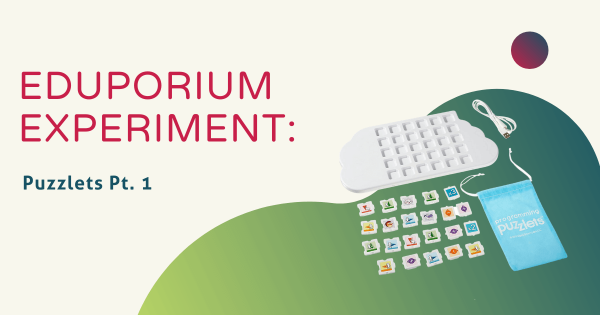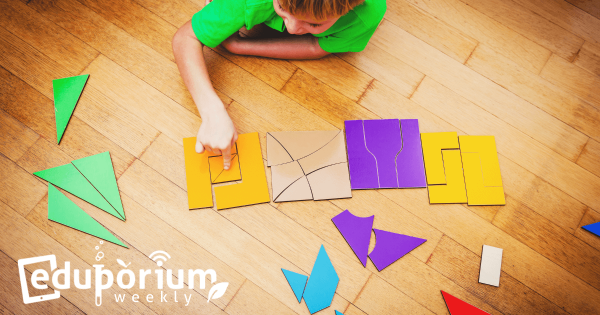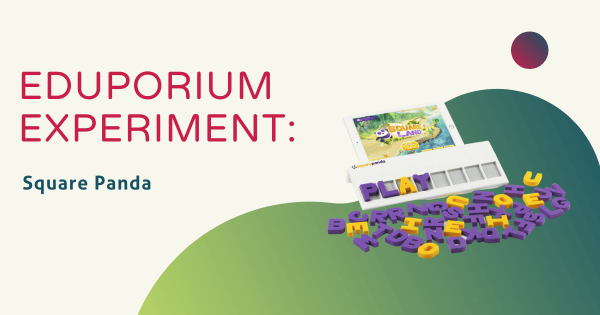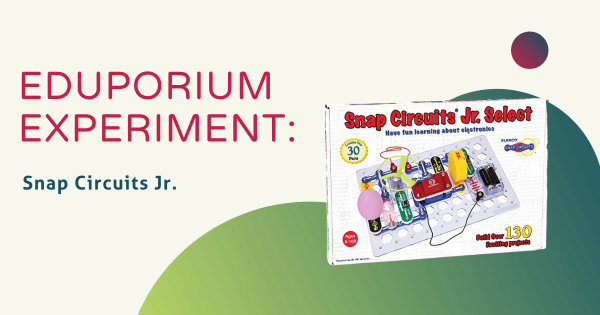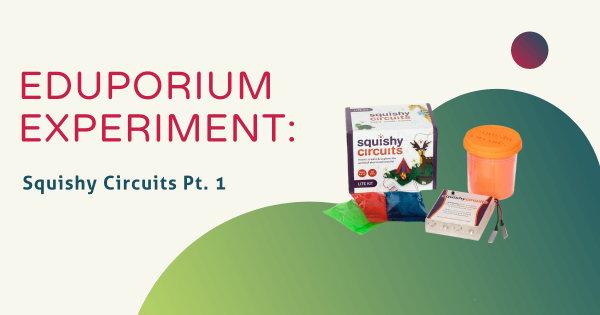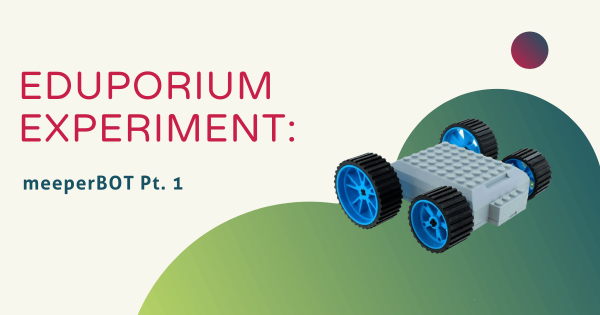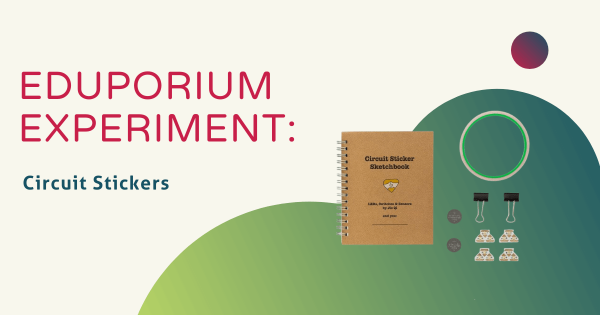The search continues to provide teachers and parents with an entry-level robot that ensures little ones aren’t left out of STEM learning. This week I experimented with one of our simpler robotics toys, the Mini MiP, which is developed by WowWee and serves as a smaller, less complex version of WowWee’s MiP robot.
Early Education
-
Eduporium Experiment | Codeybot
When there are so many personal, educational robots to choose from, how can teachers be expected to decide which one is right for their students and what they are trying to accomplish in their classroom? The ‘bot they choose has to have just the right balance of fun and learning applicability. So, let’s learn about the Codeybot. -
Eduporium Experiment | COJI Robot
COJI is a small robot designed to teach the ideas of coding to children as young as four years old by using Emoji-based commands. The idea behind this language is that faces and images are easy to understand for young children. The display screen that makes up COJI’s face depicts one emoji and the emoji-based coding language is pretty fun. -
Eduporium Experiment | Puzzlets Pt. 1
Puzzlets is a unique product designed to introduce the youngest students to problem solving and inspire curiosity through technology. The Puzzlets themselves come in a kit that connects to a Bluetooth-enabled device and create the conditions for an unusual kind of play: an interactive video game controlled by a group of physical toys. -
Eduporium Weekly | The Earlier the Better
Proponents of STEM education generally believe that hands-on, practical and in-depth learning should really begin taking place during a student’s high school years. We believe, however, that it can start earlier than that—like, much earlier. Who’s to say that young children cannot be exposed to the same kinds of experiential learning as older students? -
Eduporium Experiment | Square Panda
Square Panda is perhaps the most effective combination of early education, STEM learning and Future Ready skills available in the early EdTech market right now! Essentially, it’s a digital introduction to the phonics skills that kids in kindergarten should be able to know, but its educational value doesn’t stop there. -
Eduporium Experiment | Snap Circuits Jr.
Snap Circuits Jr., while not as pumped up as the larger Snap Circuits Kits, is a perfectly fine introduction to circuitry as well as the Snap Circuits system. It features 30 unique parts and a project guide that includes 133 of simple yet engaging child projects that encompass everything from alarm circuits to lights that illuminate. -
Eduporium Experiment | Squishy Circuits Pt. 1
When it comes to Squishy Circuits, you can try, but you probably will not be able to find an EdTech kit better catered to easy-going, open-ended play! Each of the three Squishy Circuits kits (Lite, Standard and Deluxe) encourage children as young as 8 years old to roll up their proverbial sleeves and start building. -
Eduporium Experiment | meeperBOT Pt. 1
The meeperBOT is a portable, mobile and intuitive robot that kids can use to learn the basic concepts of programming and robotic behavior. With the meeperBOTS app, students as young as five years old, can control the meeperBOT with a simple, handheld, on-screen remote. Head inside to learn more about it. -
Eduporium Experiment | Circuit Stickers
Let’s blend art and light technology with Circuit Stickers! Circuit stickers are LED circuits in the form of peel-and-stick stickers. They enable students to build real circuits without soldering, plugging wires, or clips. Instead, students use the stickers and conductive tapes to draw their circuits on paper, adding an intriguing element to their crafts.




